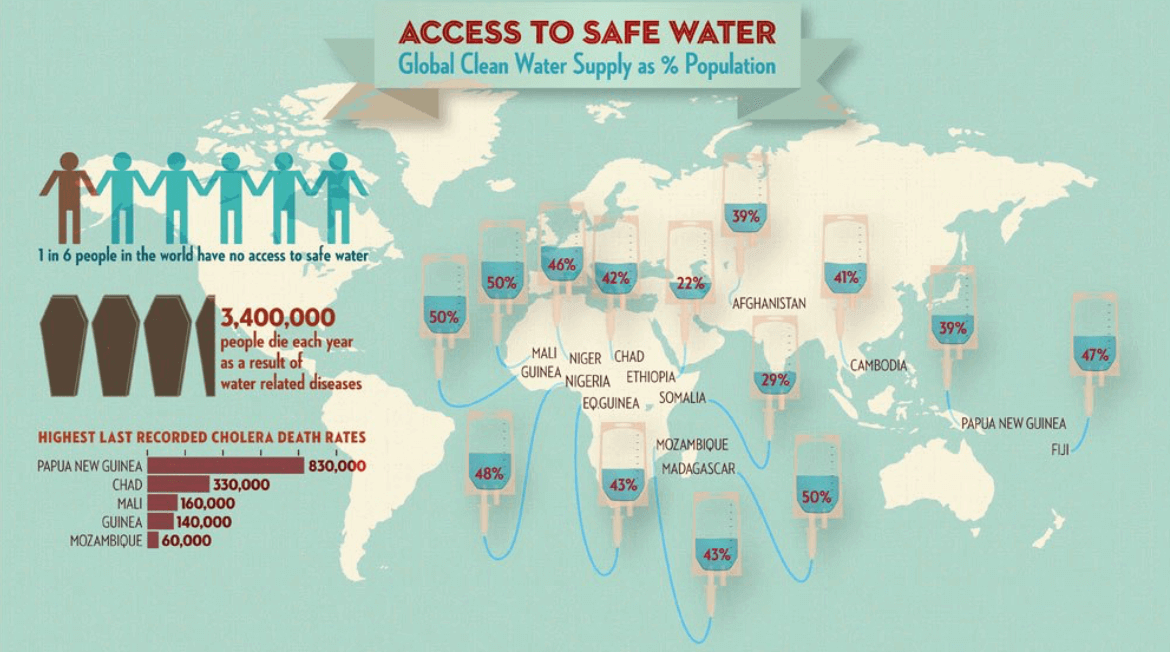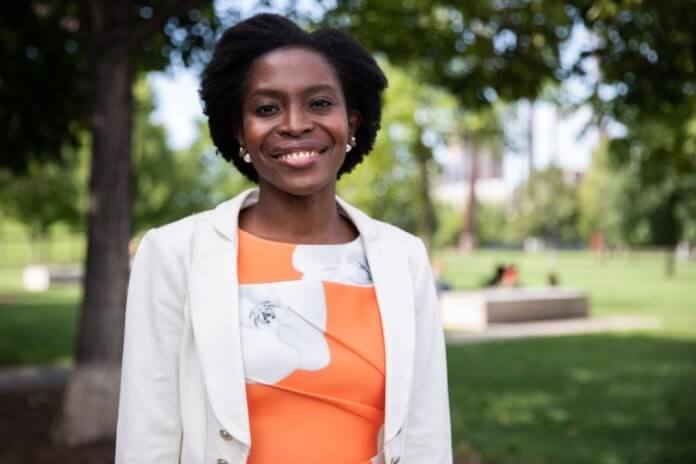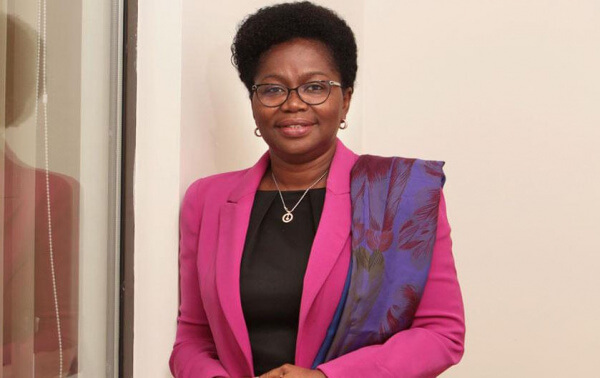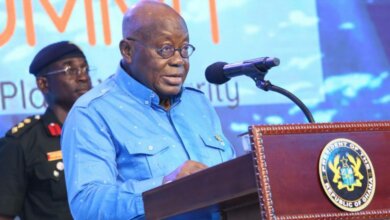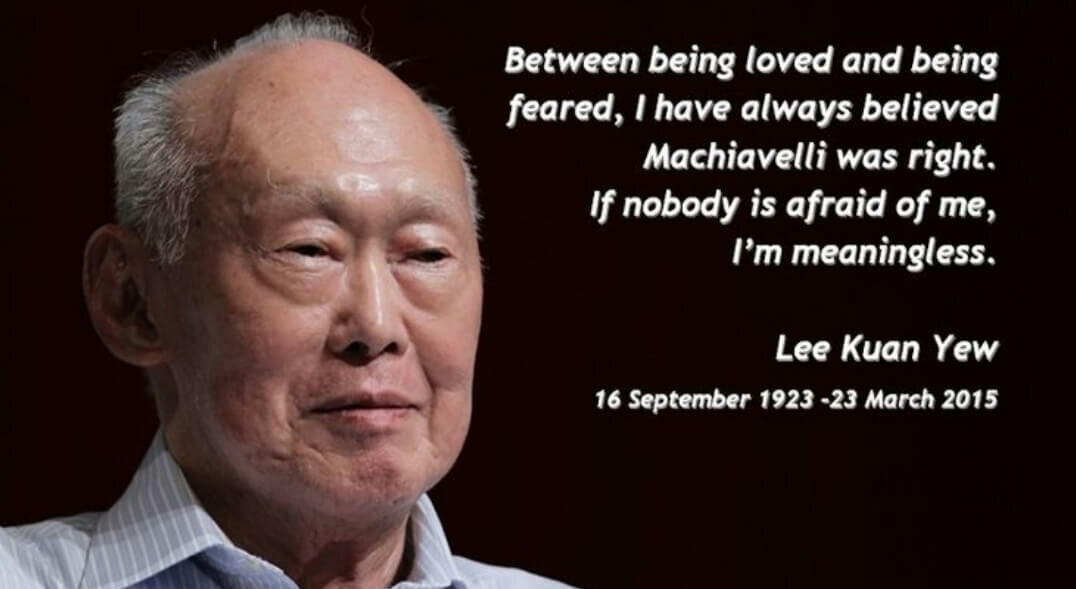Ghana’s huge gender gap in presidential politics
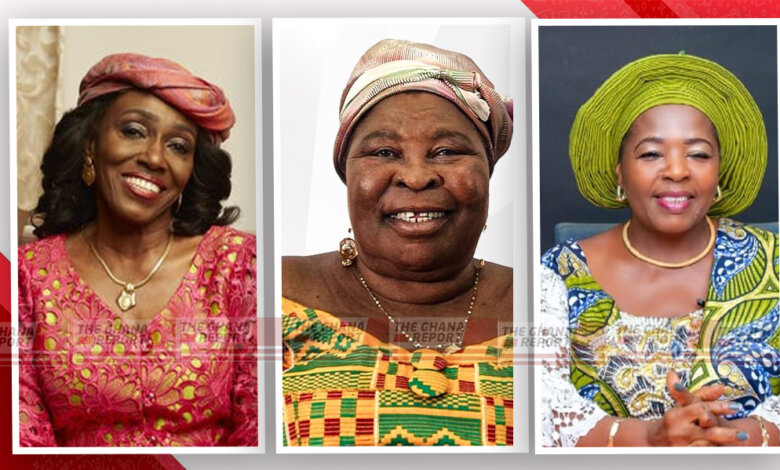
Ghana has a huge gender gap in politics, with a paltry 6 females out of 67 presidential candidates since the inception of the Fourth Republic in 1992. Despite independence 67 years ago and 32 years into the Fourth Republic, females are still lagging with just 9% making a shot at the presidency, an analysis by The Ghana Report’s political desk has revealed.
This raises huge concerns about diversity and inclusion as females edge males slightly higher with 50.7% according to the latest figure by the Ghana Statistical Service (GSS). The data from 1992 shows a better record for female vice-presidential candidates but still dwarfed by their male counterparts.
The Ghana Report Election Data Centre research desk has discovered that from 1992 to 2024, only 14 female vice-presidential candidates have been nominated to support male presidential candidates. Meanwhile, 49 males have gained the opportunity to serve as running mates since Ghana returned to constitutional governance. Females constitute 22%, and males 78%, respectively.
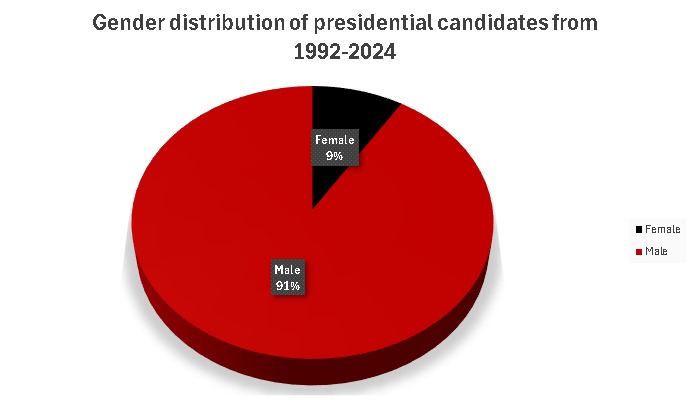
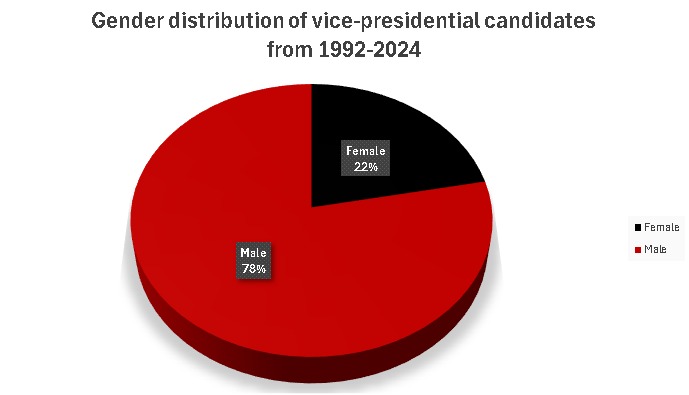
Between 1992 to 2012, no female contested as a presidential candidate. However, from 2016 to 2024, some women began to show interest in the male-dominated position by running for president. In 2016, one female contested, in 2020, three females contested and in 2024, two women were declared to contest in the election by the Electoral Commission (EC).
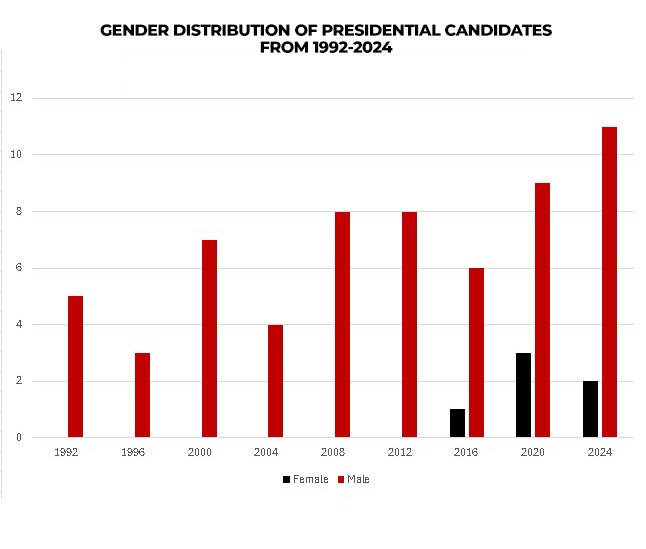
Females who have contested Ghana’s Presidential election so far
2016 Elections – Nana Konadu Agyemang Rawlings
Nana Konadu Agyeman Rawlings, the wife of the late former President Jerry John Rawlings and founder of the National Democratic Congress(NDC), was the first female to break the glass ceiling in 2016.
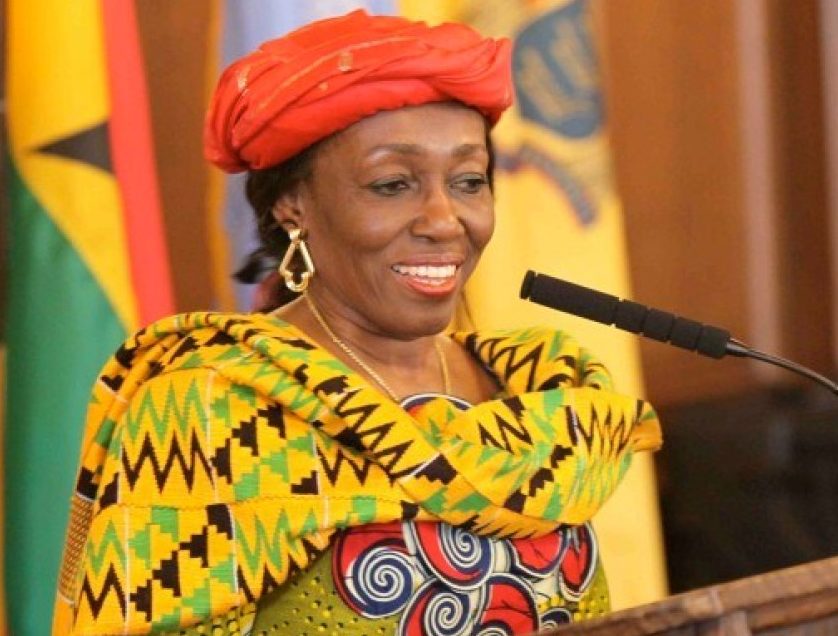
She contested the 2016 election on the ticket of the National Democratic Party (NDP), a political party she formed after breaking away from the NDC in 2012. In that year, the EC passed seven presidential candidates and she was the only female contestant. Unfortunately, she polled 17,207 votes only, representing 0.16 per cent across 275 constituencies.
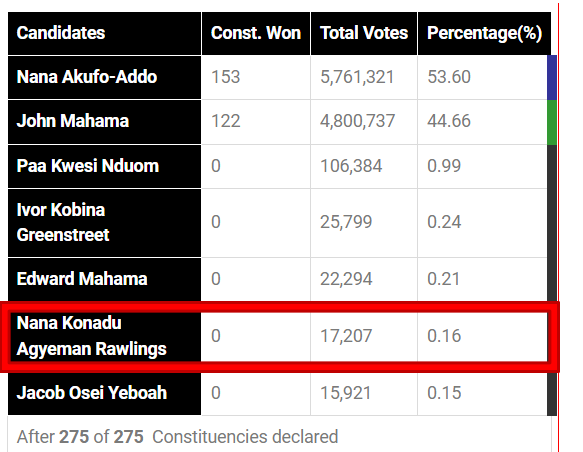
2020 Elections – Nana Konadu Agyeman Rawlings, Brigitte Dzogbenuku and Akua Donkor
Women’s representation in the political race improved in 2020 as three vibrant women emerged as presidential candidates on the ballot papers against nine males.
That number of female candidates represented 25 per cent. The female presidential candidates on the ballot papers were Nana Konadu Agyeman Rawlings (National Democratic Party (NDP), Akua Donkor, founder and leader of the Ghana Freedom Party(GFP) and Brigitte Dzogbenuku, who was nominated by the Progressive People’s Party (PPP).
The election results did not favour any female candidate as they polled very low votes. Nana Konadu Agyeman Rawlings had 6612 votes, representing 0.050 per cent, Brigitte Dzogbenuku had 6848 votes, representing 0.052 per cent and Akua Donkor had 5,574 votes, representing 0.024 per cent.
2024 Elections – Nana Frimpomaa Sarpong Kumankuman and Akua Donkor
Although three women filed their nominations to contest in the 2024 election as presidential candidates, only two were successful, representing 15.4 per cent as against 84.6 per cent males.
Those who sailed through were Akua Donkor of GFP who also contested in 2020 and a new face, Nana Frimpomaa Sarpong Kumankuman, on the ticket of the Convention People’s Party (CPP). Unfortunately, Akua Donkor died on Monday, October 28, 2024. Consequently, only Nana Frimpomaa will compete with the other eleven male candidates for the election.
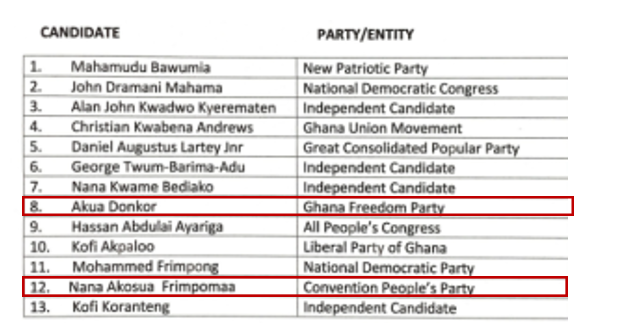
Female Vice-Presidential candidates
The chart below is a representation of Ghanaian women who have been chosen as running mates or Vice-Presidential candidates from 1992 to 2024. Only one female was chosen to partner with male presidential candidates in 1992, 1996 and 2000.
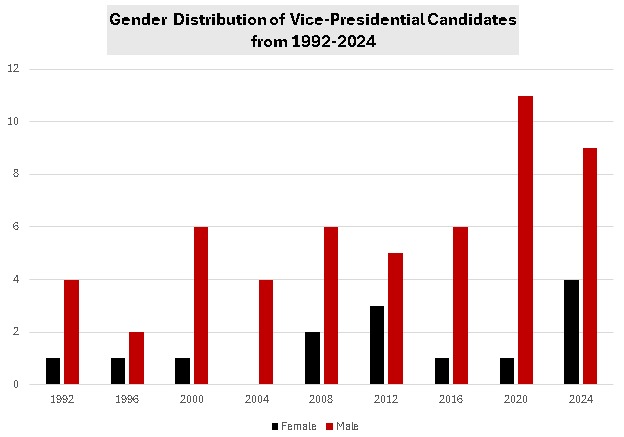
The figure rose slightly in 2012 and dipped but peaked in 2024. This year’s election has the highest number of female running mates with a total of four. Below are the female candidates who have been chosen as running mates from 1992 to 2024:
1992 Elections – Professor Naa Afarley Sackeyfio
Professor Naa Afarley Sackeyfio was the first woman to be nominated as a running mate for the National Independence Party (NIP) in 1992. She was the only female out of five running mates. She partnered Dr. Kwabena Darko who was then the presidential candidate for the party. The party had 113,629 votes, representing 2.9 per cent, across 200 constituencies.
However, the party folded up in 1993 following a merger with another Nkrumahist party. Professor Naa Afarley Sackeyfio is a product of the Holy Child Senior High School and the University of Ghana. She served as a professor of English at the University of Cape Coast.
1996 Elections -Adeline Dedo Nartey
In 1996, Adeline Dedo Nartey was chosen as Edward Nasigrie Mahama’s running mate for the People’s National Convention(PNC). PNC had 214,373 votes, representing 3.0 per cent in that year. Two male running mates were part of the political race that year.
2000 Elections – Petra Maria Amegashie
In 2000, Petra Amegashie rose to the limelight as a running mate to Dan Lartey of the Great Consolidated Popular Party (GCPP). GCPP managed 67,504 votes, representing 1.0 per cent only. Six male running mates participated in 2000, statically representing 14.3 for females and 85.7 for males. Petra hails from the Volta Region.
She is an alumnus of Keta Roman Catholic School and Ola Girls Secondary School. She worked as a secretary to the National Catholic Secretariat and Director of Research with the defunct Novotel Hotel. She also served on other international boards.
2008 Elections – Petra Maria Amegashie and Patricia Ameku
Petra took a short break from politics after the 200o elections and switched allegiance to the PNC. She became a favourite of the party and Dr. Edward Nasigrie Mahama selected her as his running mate for the 2008 general elections.
The only other female to participate as a running mate in 2008 was Patricia Ameku who paired with Emmanuel Ansah Antwi of the Democratic Freedom Party (DFP). The two ladies battled with six other male running mates, representing 25 per cent as against 75 per cent.
2012 Elections – Eva Lokko, Nana Akosua Frimpomaa and Helen Sanorita Dzatugbe Matervi
2012 was a breakthrough for women in politics. In that election year, three solid females were appointed to serve as vice presidential candidates against five male counterparts.
- Nana Akosua Frimpomaa-Sarpong (CPP).
Nana Akosua Frimpomaa-Sarpong was selected as the running mate to Dr. Abu Sakara Foster to lead the Convention People’s Party (CPP). Akosua Frimpomaa-Sarpong was born into a political family as the father, Mr. Sarpong Kumankuma once served as an organizer for the CPP.
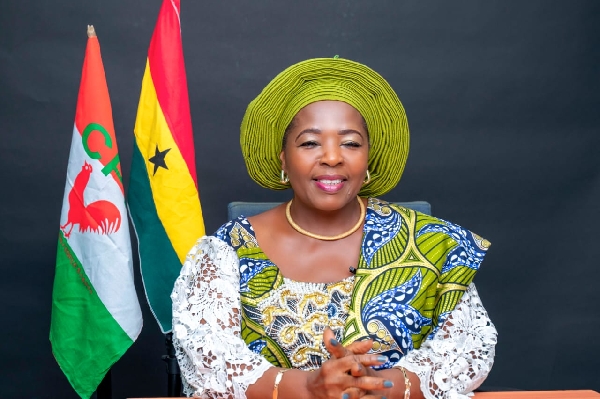
Nana Akosua Frimpomaa-Sarpong rose to occupy the same position as her father before pairing with Dr Foster. She is a former National Organiser of the 31st December Women’s Movement and one of the initial five people who developed the concept for the formation of the movement.
She is a social worker, philanthropist and the Dwantoahemaa of the Dormaa Traditional Area in the Brong Ahafo Region, bearing the stool name Nana Akosua Frimpongmaa II. She is currently the Presidential Candidate for the Convention People’s Party (CPP) in the 2024 election. Her political journey is a testament to women’s bravery in achieving their political ambitions.
- Mrs. Eva Naa Merley Lokko
Mrs. Eva Naa Merley Lokko was the running mate to Dr. Papa Kwesi Nduom on the ticket of the Progressive People’s Party (PPP) in 2012. Before assuming this role, Mrs. Lokko had served as the first female Director-General of the Ghana Broadcasting Corporation since its inception in 1935.
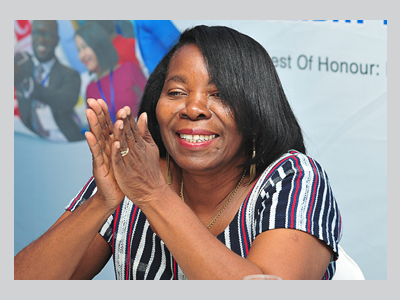
She was the first Satellite Communications Engineer in Ghana and a learned politician. She was the first woman to be chosen as the Vice-Presidential candidate of the PPP. She died on October 6, 2016, after a brief illness at age 64.
- Helen Sanorita Dzatugbe Matervi
Madam Helen Sanorita Dzatugbe Matervi ran alongs de the People’s National Convention’s (PNC’s) Hassan Ayariga in 2012. Due to her influence and political understanding, Mr. Sekou Nkrumah, son of Osagyefo Dr. Kwame Nkrumah, suggested that she should have been the presidential candidate because she was “miles ahead” of the flagbearer, Mr. Hassan Ayariga. She is a communications expert and educationist.
2016 Elections – Brigitte Dzogbenuku
The narrative changed drastically in 2016 as only one female vice presidential candidate featured in the elections against six male running mates, representing 14.3%. She served together with Dr. Papa Kwesi Nduom of the Progressive People’s Party (PPP). Before running for this position, Brigitte Dzogbenuku was the General Manager of the Aviation Social Center.
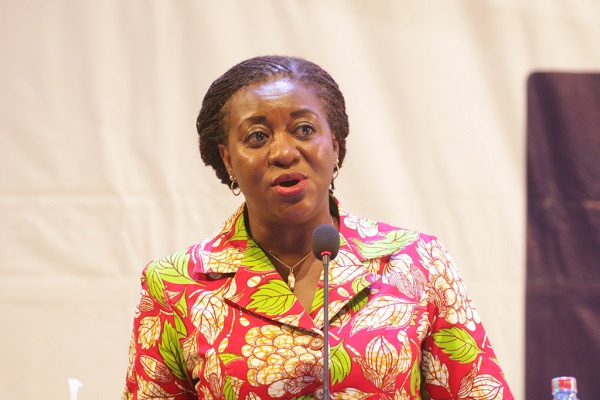
She also served in a Mujeres Por Africa/NYU Wagner Institute programme where she coached participants of the Ghanaian Women’s Social Leadership Program in 2014 and 2015. After participating in the Vital Voices Fortune/U.S. State Department Global Women’s Mentoring Partnership, in 2008, she won the 2008 Fortune/Goldman Sachs Women’s Leadership Award.
She also contested for Miss Ghana 1990 and won. She holds a Bachelor of Arts in Modern Languages from the University of Ghana, Legon and is a product of Wesley Girls Senior High School. She was the presidential candidate for the PPP in 2020.
2020 Elections – Professor Jane Naana Opoku-Agyemang
In 2020, Professor Jane Naana Opoku-Agyemang was the only female running mate who participated in the presidential elections. She partnered with John Dramani Mahama on the ticket of the National Democratic Congress (NDC).
Prof. Opoku-Agyemang was appointed the Vice-Chancellor of the University of Cape Coast in 2008, the first female Vice-Chancellor of a public university in Ghana precisely.
Before heading the university, she had served as head of the Department of English, Dean of the Faculty of Arts, Dean of the Board of Graduate Studies and Founding Dean of the School of Graduate Studies and Research since 1986. She is also a two-time Fulbright scholar and a Fellow of the Commonwealth of Learning (COL). She hails from Cape Coast in the Central Region.
2024 Elections – Professor Jane Naana Opoku-Agyemang, Elizabeth Sam, Dr. Maryam Issaka Kriese and Evelyn Serwaa Bonsu
This year’s election has produced a record number of female running mates who are determined to lead the nation with their presidential pairs. Four female running mates are featured in this year’s election.
Professor Jane Naana Opoku-Agyemang (NDC), Elizabeth Sam on the ticket of the Liberal Party of Ghana(LPG), Evelyn Serwaa Bonsu on the ticket of the Ghana Union Movement(GUM) and Dr. Maryam Issaka Kriese, partnering with Nana Kwame Bediako, an independent presidential candidate. The females are contesting against 9 males, representing 31% as against 69%.
- Professor Jane Naana Opoku-Agyemang
Early this year, John Dramani Mahama settled on Professor Jane Naana Opoku-Agyemang as his running mate for the second consecutive time.
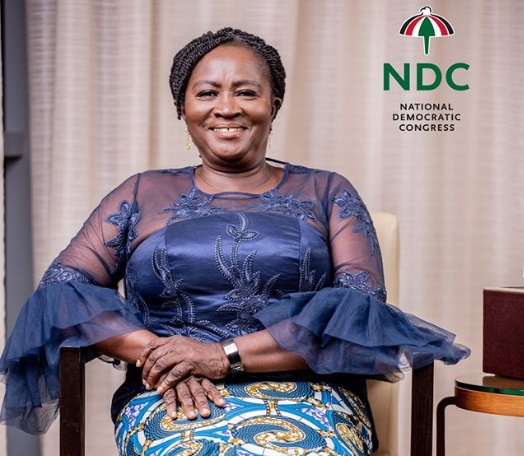
The former Education Minister, Prof. Opoku-Agyemang, partnered with former President John Dramani Mahama in the 2020 election. According to the party’s leadership, the renomination of Prof. Opoku-Agyemang as running mate brings a wealth of experience, expertise, and dedication to their activities towards the election.
- Dr. Maryam Issaka Kriese
Nana Kwame Bediako, popularly known as Cheddar chose Dr. Maryam Issaka Kriese as his running mate due to her ability to perform in a male-dominated environment. Dr. Kriese is a distinguished academic who has taught at the University of Ghana Business School and the University of Professional Studies, Accra.
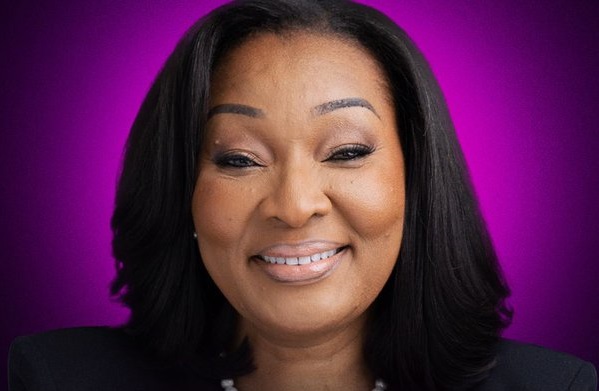
Her deep financial acumen is complemented by an impressive academic track record, including a PhD in Finance, an MBA, and advanced certifications in Islamic Finance and ERP software. She is a Muslim by religion and a well-known advocate for women’s rights.
- Elizabeth Sam
Elizabeth Sam is the running mate for Percival Kofi Akpaloo, founder and leader of the Liberal Party of Ghana(LPG) for the 2024 Presidential election.
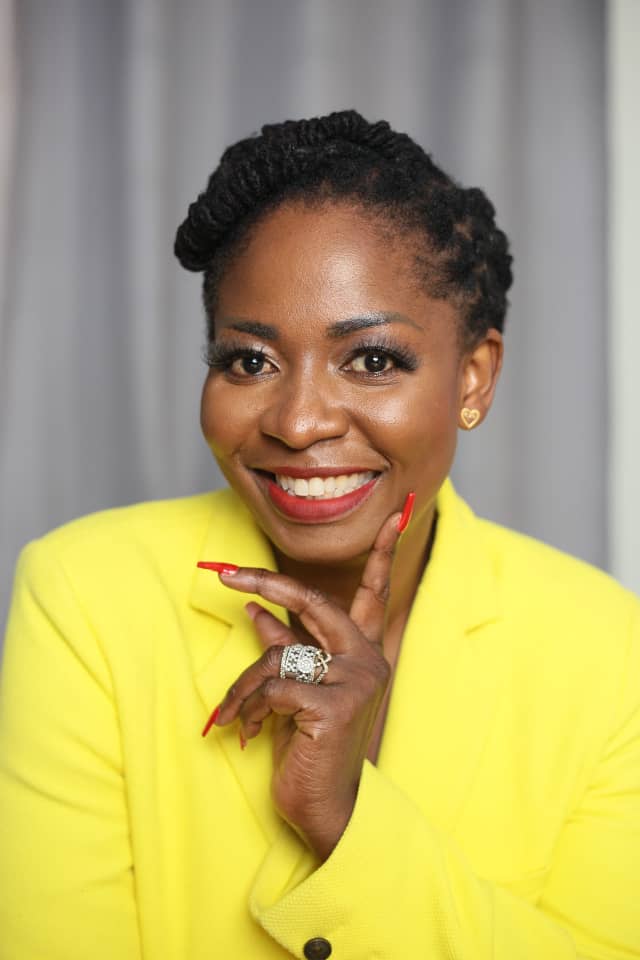
As a social worker and mother of three, she is optimistic about bringing novel ideas aimed at selling the LPG to the electorate to win their votes in the December polls.
- Evelyn Serwaa Bonsu
Reverend Christian Kwabena Andrews, founder and leader of the Ghana Union Movement (GUM) chose Evelyn Serwaa Bonsu as his running mate. According to the party’s leader, Evelyn is passionate about fostering sustainable economic growth and industrialization.
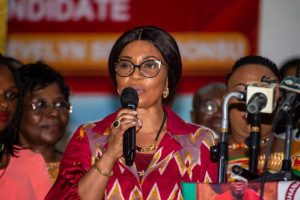
Evelyn Serwaa Bonsu has also promised to invest in girl-child education at the post-secondary level to promote gender equity if GUM is elected to lead the nation in this year’s election.
Reasons accounting for low participation of ghanaian women in politics
Various research has pointed out that intimidation, lack of recognition, illiteracy, lack of resources to finance campaigns, gender-based violence, gender roles and lack of political will by parties to support women are the major factors leading to the low participation of Ghanaian women in politics.
Mechanisms to address weak participation of women in politics
Dr. Rosina Foli, a senior lecturer at the Political Science Department of the University of Ghana, told The Ghana Report in an interview that a mechanism should be implemented to boost education and re-socialization to enlighten Ghanaian women to participate in politics:
“Looking at how to deal with low participation of women in politics, I think the big thing to look at is education or re-socialization, to re-shape how we look at gender roles in our society because the gender roles we define will ultimately play what we think a woman can become or what a man can become. So if we are able to re-socialize our kids, they will grow up with a mentality that does not limit or restrict women to the private sphere and men to the public sphere. It has to be holistic, both male and female children have to be re-socialized. In that way, the female can also aim to achieve all that”.
Dr. Foli also called on political party leaders to appoint more females at the basic level to reflect at the national level:
“The other thing I will look at is the party structure. Myself and one of our students conducted a study and we realized that the party structure that we have in our country from the basic unit to the electoral unit, the polling station executives, in the various areas reflects what happens at the national level. So if we want to encourage women to be part of leadership, then we have to start from the very basic unit. Encourage women’s participation at the basic level. Make it easy for them,” she noted.
She also challenged women to take up leadership positions despite the challenges associated with climbing up the ladder:
“Women should put themselves out there, notwithstanding the harsh terrain, because the terrain is harsh. If you read some of the stories of women who have ventured into these positions they will tell you it’s harsh. They are not treated kindly. People ask them, have you taken care of your home? You are not supposed to be there. If you are wearing nails you are seen as a witch and all that, but despite that, women still have to put themselves out there”.
She further called on women to support their colleagues contesting higher political positions.
Affirmative Action Bill 2024
The Affirmative Action (Gender Equity) Bill was passed in July 2024 which is expected to empower more women. The bill addresses the historical and systemic gender imbalances that have long permeated the nation’s political, social, economic and cultural landscapes. With female support backed by law, it paves the way for increased participation leading to gender parity in the next few years.
Source: The Ghana Report

Disclaimer: The views and opinions expressed in articles and content by our contributors are those of their’s and do not necessarily reflect the official policy or position of our publication. We make every effort to ensure that the information provided is accurate and up-to-date, while holding contributing authors solely responsible for their contributions.

